By Ray Linville
Where do you go for food when you’re at a literary festival on a weekend and the places open on weekdays are closed? When the N.C. Literary Festival was held this year in Raleigh, the answers to feed the hungry public were food trucks. The festival drew thousands to author readings and discussions, performances, book signings, and children activities. Can you imagine how hungry these events made everyone?
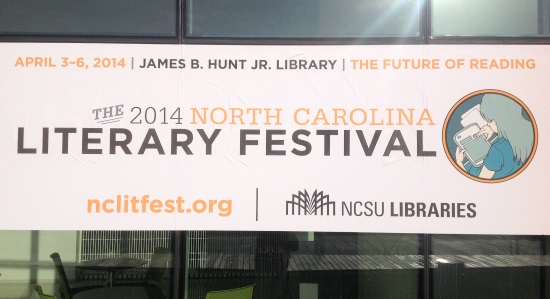
Food trucks can be ready to satisfy the hunger demands as the crowd surges during special events. The trucks often have well-established reputations for quick and tasty food. The clue for which trucks are really good is the length of the line of customers waiting to place orders. Twitter is often helpful to receive updates on times and locations that favorite trucks are serving.
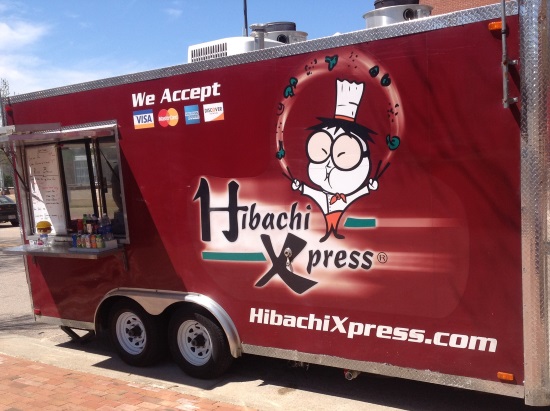
Food trucks have been appearing with increasing regularity all over our state (as well as the country), particularly in urban areas such as the Triangle, Triad, Charlotte, and Wilmington. Some cities such as Raleigh and Durham even have regular food truck “rodeos” where more than 50 trucks feed the crowds as they enjoy music and other activities at a park, farmers’ market, or downtown area. Trucks also serve at festivals and events in small towns as well.
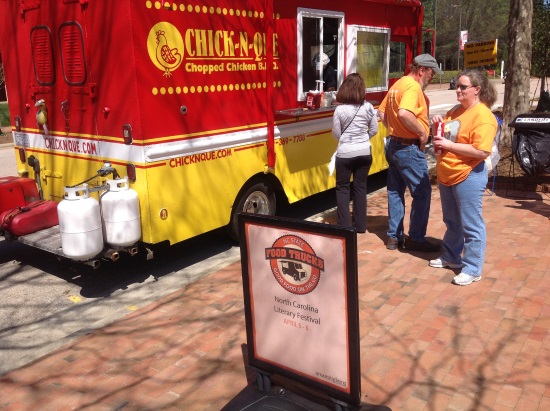
Menus are varied although limited and range from savory to sweet treats. Trucks typically offer specific types of food, such as burgers, bakery items, Cajun cuisine, Asian dishes, tacos, barbecue, wings and chicken, and waffles. Operating a truck gives chefs additional flexibility to prepare unusual dishes that wouldn’t be compatible with their restaurants’ signature themes. For example, Chef Keith Rhodes in Wilmington is renowned for fresh fish dishes at Catch, his seafood restaurant, but serves up Saigon hot dogs and Pad Thai veggie tacos as part of the limited menu on his mobile Catch the Truck. Sometimes chefs use food trucks to test the popularity of new items before introducing them in brick-and-mortar establishments.

The 2014 N.C. Literary Festival was held at the futuristic James B. Hunt Jr. Library. On the high-tech Centennial Campus of N.C. State University, the innovative library is known as the home of “bookBot,” an impressive robotic book delivery system that can store up to two million items and deliver any of them within five minutes of a request. (A trip to the library is worthwhile just to watch bookBot in action.) However, bookBot was the only one at the festival not looking for food after authors had spoken and literary activities had ended.
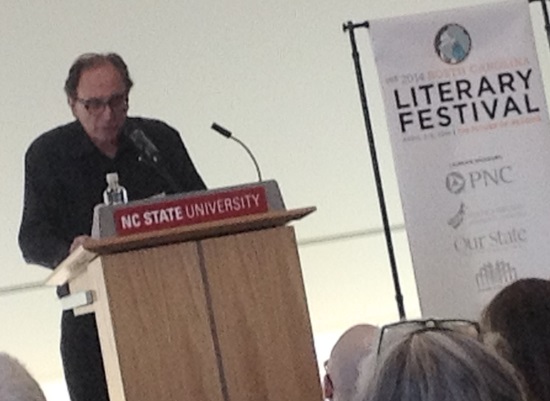
Because the small café at the library could not have adequately served the thousands who attended the festival, food trucks were indispensable. They are also increasing popular. “Food trucks are a phenomenon of the last five years in this area, and they have really come into their own. They are a great way to have on-site food,” says Marian Fragola, Director of Program Planning and Outreach for NCSU Libraries, who was a principal planner for the festival.
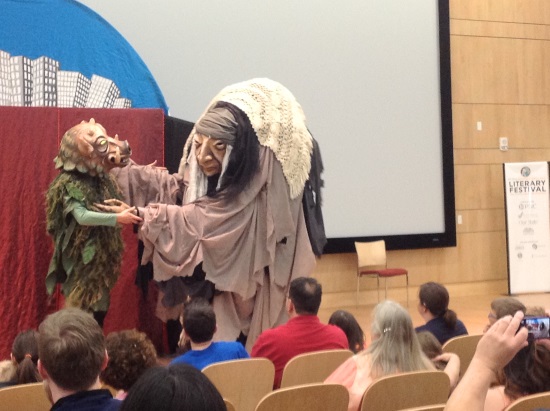
Fortunately, food planning for the literary festival was not too difficult because N.C. State has been supplementing its traditional food locations with seven trucks to improve the options in underserved areas, such as the Centennial Campus. The university even has a Twitter feed (@ncstatedining) to provide updates about trucks to students, staff, and faculty. “Each food truck at the festival has an ongoing relation with Centennial Campus,” says Fargola, who worked with Campus Enterprises, the university’s lead division for retail and hospitality, to plan the food truck arrangements for the festival.
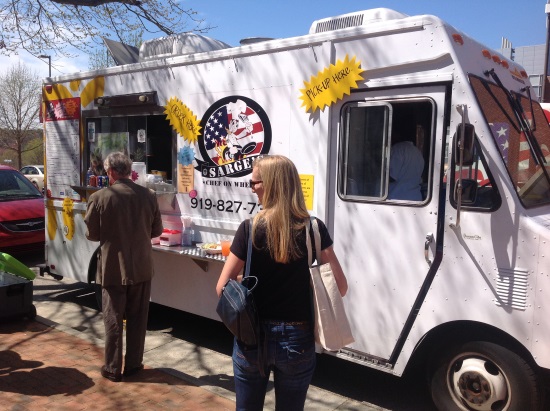
Mobile food is part of the food culture in our state. In addition to the rodeos in large cities, food trucks often appear on streets of small towns during seasonal festivals. The increasing availability of food trucks and their wide-ranging menus make this tradition even more enjoyable. When you see a food truck again in your area, check the menu board and plan to be tempted.
_______________________________________________________________

Ray Linville writes and lectures on regional culture, including foodways and folklife. He has taught in the N.C. Community College System as a professor of English and humanities and served on the board of the N.C. Folklore Society. Read more about Ray’s ramblings at his blog: Sights, Sounds and Tastes of the American South.
_____________________________________________________
RESOURCES
Downtown Raleigh Food Truck Rodeo
Durham Central Park Food Truck Rodeo
Food Trucks at N.C. State University
Leave a Reply